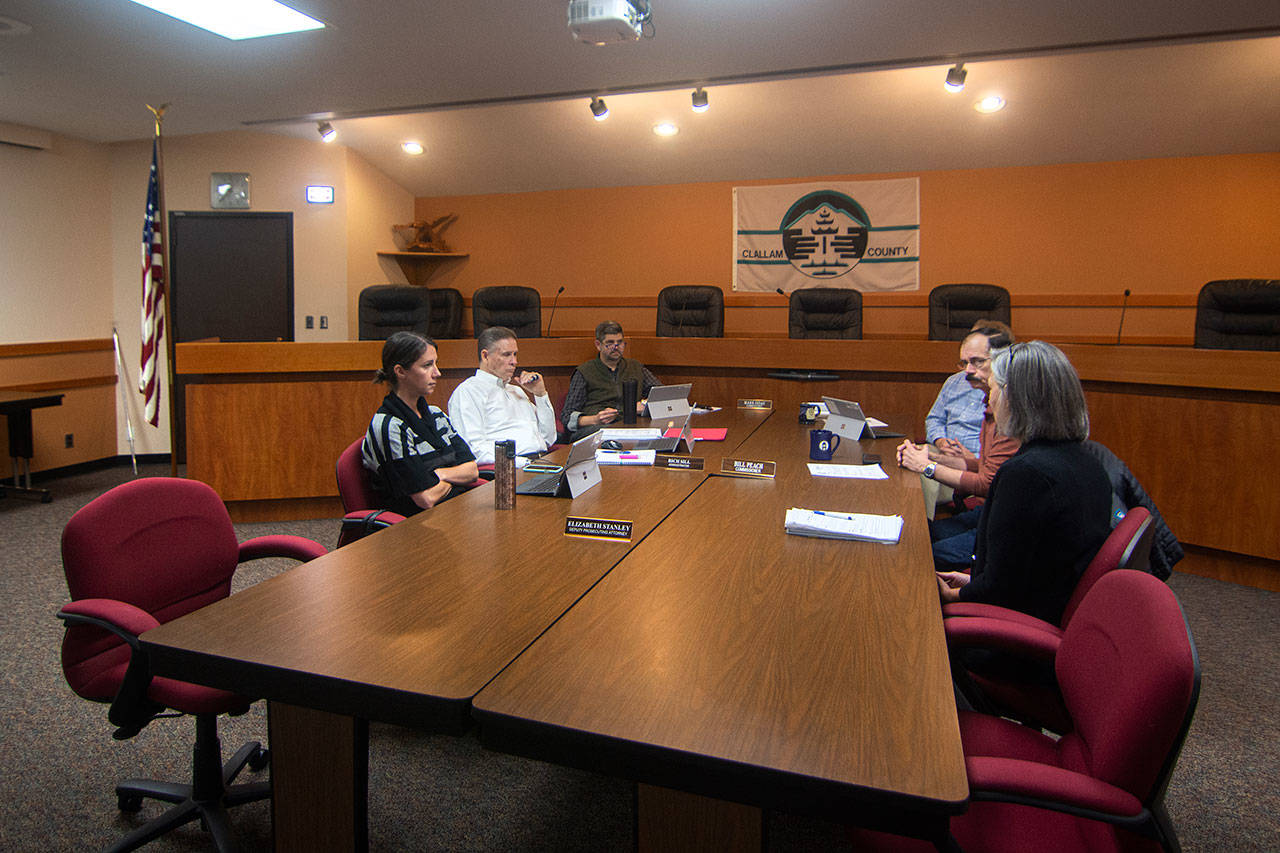PORT ANGELES — Clallam County commissioners have agreed that the proposed Conservation Futures property tax should be limited to preservation of farmland and have eliminated language that would allow for preservation of open space and public access to water.
Commissioners Mark Ozias and Randy Johnson said during a work session Monday they were supportive of the move and Commissioner Bill Peach said that while he opposes the tax, he supports limiting the use of the funds. Commissioners are expected to vote on the tax during their 10 a.m. meeting today.
Ozias said that though he personally prefers the more broad language that allowed more uses of the fund, he heard “strong and consistent feedback” from many who only wanted the fund to be dedicated to preserving farmland.
“The reality is if a few years from now commissioners wish to amend the ordinance and amend that language because the situation on the ground has changed, that could happen any time,” Ozias said. “By adding this language to the ordinance it achieves a level of transparency of what we’re trying to accomplish and is what the public told us they would like us to accomplish with these dollars.”
Under state law, the Board of County Commissioners has the authority to pass — without a vote of the people — a property tax to create a fund that is used to purchase development rights to preserve farms, agricultural land, park land, open areas and public access to water.
The current draft of the ordinance would set a levy at $0.0275 per $1,000 of assessed valuation, which Johnson said would raise about $250,000 each year. That would be an additional $6.88 per year for a home valued at $250,000.
When a land owner receives a payment from the Conservation Futures program, that property owner still owns the land and is still required to pay property tax. The only restriction is that the land must continue to be a farm.
Officials said that tax could be used to secure matching dollars from other organizations that share the same mission.
Mary Ellen Winborn, director of the Department of Community Development, urged commissioners to keep the more broad language, even if the funds are primarily used for farmland.
“I believe in preserving farmland, but I don’t believe in … ignoring the rest of the opportunities as well,” Winborn said. “You never know what project could come in front of you.”
Both Ozias and Johnson expressed support for Winborn’s suggestion, but they have had many conversations with people who only supported the tax going toward farmland.
“I think we started out with the broader language … and gosh, how many emails have I had that say that’s not where we should go,” Johnson said.
Winborn also asked commissioners whether they had considered an advisory vote.
Peach emphasized that the board could hold an advisory vote at a later time. However, commissioners were told they must approve the tax this month in order for it to be implemented in 2020.
“I can tell you I don’t support increased taxes,” Peach said. “A lot of messages I have received … a very, very predominate theme is to stick with farms first.
“Although I do not support the tax, I do support the language change,” Peach said.
________
Reporter Jesse Major can be reached at 360-452-2345, ext. 56250, or at jmajor@peninsuladailynews.com.


